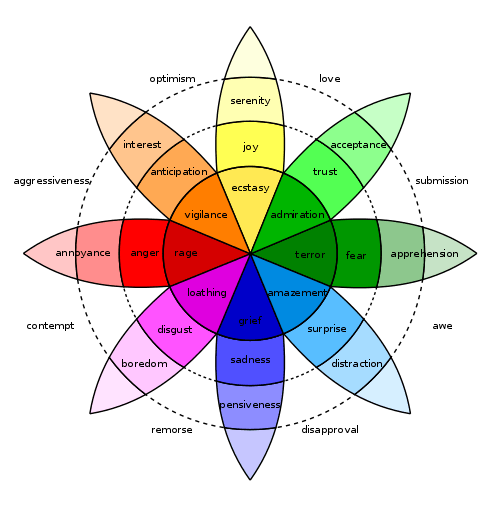Confidence
Confidence has a common meaning of a certainty about handling something, such as work, family, social events, or relationships.[1] Some have ascribed confidence as a state of being certain either that a hypothesis or prediction is correct or that a chosen course of action is the best or most effective. Self-confidence is having confidence in one's self. Arrogance or hubris in this comparison is having unmerited confidence – believing something or someone is capable or correct when they are not. Overconfidence or presumptuousness is excessive belief in someone (or something) succeeding, without any regard for failure. Confidence can be a self-fulfilling prophecy as those without it may fail or not try because they lack it and those with it may succeed because they have it rather than because of an innate ability.
Extent
Taken to an extreme, over-confidence can cause problems as evidenced by the famous author Matthew Syed and mentioned here in this reference in regard to sport.[2] Motivation theories have suggested that successful performance hinges on both skill and will.[3] Yet, even a motivated and skilled individual can fail to perform if he or she does not have a personal certainty belief that s/he can handle what it takes or what needs to be done.[1] Stajkovic (2006) argues that all three – skill, will, and confidence – are needed for action to unfold.[1] The opposite of confidence is doubt.
Core confidence
Confidence sits at the core of four other manifestations: Hope, Efficacy, Optimism and Resilience. [4][5] Confidence enables the potential that is already present (skill and motivation) to unfold.[4] Self-confidence does not necessarily imply "self-belief" or a belief in one's ability to succeed. For instance, one may be inept at a particular sport or activity, but remain "confident" in one's demeanor, simply because one does not place a great deal of emphasis on the outcome of the activity. When one does not dwell on negative consequences one can be more "self-confident" because one is worrying far less about failure or the disapproval of others following potential failure. One is then more likely to focus on the actual situation which means that enjoyment and success in that situation is also more probable. Belief in one's abilities to perform an activity comes through successful experience and may add to, or consolidate, a general sense of self-confidence. Research by Stajkovic and colleagues revealed that confidence was a significant factor in academic performance, sales performance, satisfaction with life and job satisfaction.[4] Studies have also found a link between high levels of confidence and wages. Seemingly, those who self-report they were confident earlier in schooling earned better wages and were promoted more quickly over the life course.[6]
Lack of self-confidence
Low confidence makes it less likely that a person will initiate action and more likely that a person will disengage because they doubt they can handle what needs to be done.[4] In certain fields of medical practice patients experience lack of self-confidence during the recovery period. This is commonly referred to as DSF or "defectum sui fiducia" from the Latin etymology of lack of self-confidence. For example, this can be the case after stroke whereby the patient refrains from using the weaker lower limb due to fear of it not being strong to hold their weight whilst standing or walking.
In relation to others
People may have confidence in other people or forces beyond their control. For instance, one might have confidence in the police to protect them, or might have confidence that a sports team will win a game. Faith and trust are synonyms of confidence when used in this sense.
Possible explanation
It is suggested that the confidence bias can be explained by a noisy conversion of objective evidence (observation) into subjective estimates (judgment), whereas noise is defined as the mixing of memories during the storing (observing/learning) and retrieval process (remembering/judgment).[7] The information-theoretic logic behind this explanation is very similar to the mechanism that can also lead to the conservatism bias, and holds that we mix true and false evidence during storage and retrieval of evidence to and from our memories. The confidence bias results because as judges we "look inside our own memory" (evaluate our confidence) and find evidence that is more extreme than when we retrieve evidence for our judgements (which are conservative due to mixing of extreme values during retrieval). This explanation is very simple and straightforward, but nevertheless sufficient mechanism to generate both, overconfidence (in situations where judges are very sure) and underconfidence (in cases when judges openly state to lack the required knowledge).
See also
| Look up Confidence or confidence in Wiktionary, the free dictionary. |
| Wikiquote has quotations related to: Confidence |
References
- 1 2 3 Stajkovic, Alex (2006). "Development of a Core Confidence-Higher Order Construct". Journal of Applied Psychology. 91 (6): 1208–1224. doi:10.1037/0021-9010.91.6.1208. PMID 17100479.
- ↑ Syed, Matthew (16 December 2015). "Mourinho damned by his god complex". London: The Times. Retrieved 18 December 2015.
- ↑ Porter, L. W., & Lawler, E. (1968). Managerial attitudes and performance. Homework, IL: Dorsey.
- 1 2 3 4 Stajkovic, Alexander D.; Lee, Dongseop; Greenwald, Jessica M.; Raffiee, Joseph (May 2015). "The role of trait core confidence higher-order construct in self-regulation of performance and attitudes: Evidence from four studies". Organizational Behavior and Human Decision Processes. 128: 29–48. doi:10.1016/j.obhdp.2015.02.001. ISSN 0749-5978.
- ↑ Wisconsin School of Business at the University of Wisconsin-Madison (2015-07-08), What is Confidence?: Faculty Research from the Wisconsin School of Business, retrieved 2018-09-30
- ↑ "Lifelong confidence rewarded in bigger pay packets". The Australian Financial Review. 28 November 2012.
- ↑ Martin Hilbert (2012) "Toward a synthesis of cognitive biases: How noisy information processing can bias human decision making". Psychological Bulletin, 138(2), 211–237; free access to the study here: martinhilbert.net/HilbertPsychBull.pdf
